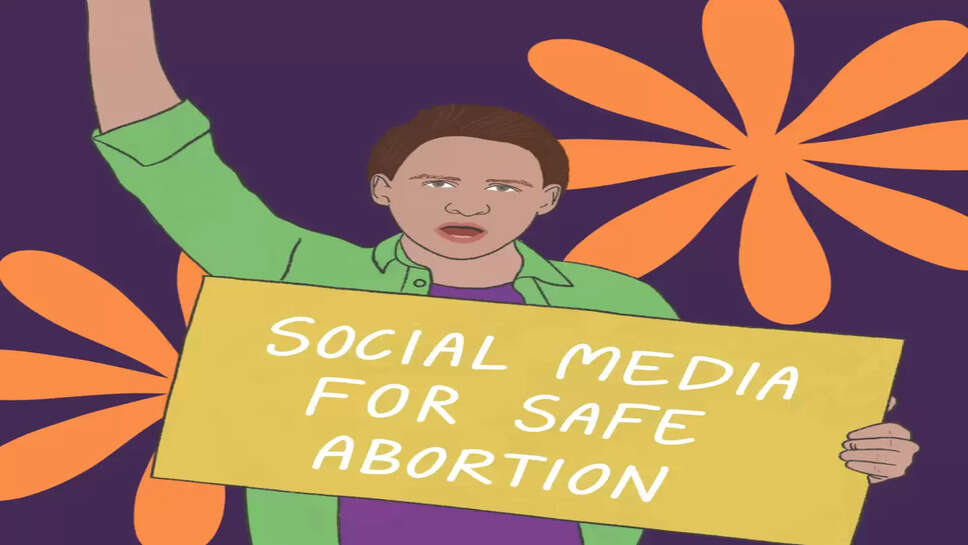Parliament Greenlights Decriminalisation of Abortion, Repeals Archival Law

In a landmark moment for reproductive rights, the UK Parliament has voted to decriminalise abortion, marking the end of a legal framework dating back to the 19th century. The vote passed with a clear majority across party lines, following decades of campaigning by activists and advocacy groups who viewed the existing legislation as outdated and harmful to women's autonomy.
The repeal effectively removes abortion from the criminal code in England and Wales, aligning reproductive rights legislation with a more health-focused and rights-based approach. This historic shift puts the UK in line with many other modern democracies that treat abortion as a matter of healthcare rather than criminality.
⚖️ What Changed?
The key focus of the vote was the repeal of sections of the Offences Against the Person Act 1861, a law that criminalised abortion with harsh penalties, including potential life imprisonment. Although the 1967 Abortion Act had already made abortion legal under certain conditions, the procedure remained technically a criminal offence unless performed under specific guidelines and approvals.
Under the new framework, abortion is no longer classified as a criminal act. Instead, it is treated as a medical procedure governed by health regulations, not penal codes. Women seeking abortions—and the healthcare providers who support them—will no longer face the threat of criminal prosecution for decisions related to their bodies and health.
🗳️ The Parliamentary Vote
The vote saw a rare moment of unity in an otherwise divided Parliament. While moral and ethical debates remain, the majority of MPs acknowledged the need for reform. Lawmakers cited changing societal attitudes, the advancement of medical technology, and the importance of bodily autonomy as driving factors behind their support.
The House of Commons passed the bill with overwhelming support, followed by swift approval in the House of Lords. Both houses agreed that the time had come to modernise laws governing women’s reproductive choices.
🧑⚖️ A Long-Awaited Step
For reproductive rights activists and legal scholars, this change has been a long time coming. The 1861 law was drafted in a time when women had no vote, no formal legal identity, and little access to education or healthcare. That such a law remained on the books for over 160 years was seen by many as symbolic of broader systemic gender inequality.
The Abortion Act of 1967 was a critical milestone, allowing legal terminations under strict conditions, usually requiring approval from two doctors. However, critics argued that it infantilised women and restricted access based on gatekeeping, rather than empowering them to make informed choices.
By removing the procedure from criminal law altogether, the government now recognises abortion as a matter of healthcare, privacy, and individual liberty.
🧬 Impact on Healthcare Access
Medical professionals have welcomed the move as a step toward patient-centred care. Doctors, nurses, and clinic staff often operated under fear of breaching legal constraints, even when working in patients’ best interests. The change is expected to simplify protocols, reduce stigma, and allow for more compassionate treatment.
Women in vulnerable situations—such as survivors of abuse, those facing serious health complications, or those in poverty—will now have easier and less intimidating access to abortion services. Additionally, the reform is expected to bolster telemedicine and early-stage medication-based abortions, particularly in rural or underserved areas.
🌍 A Message to the World
The UK’s decision has global implications. Around the world, countries continue to wrestle with the legal, ethical, and cultural implications of abortion. Some have recently tightened restrictions, while others are moving toward liberalisation.
By decriminalising abortion, the UK sets a precedent for treating reproductive rights as human rights. It also demonstrates that progressive reform is possible through democratic debate, evidence-based policymaking, and respect for individual freedom.
🗣️ Voices from the Floor
During the debate preceding the vote, powerful speeches echoed through Parliament. MPs from diverse backgrounds spoke about personal experiences, public health data, and moral complexities. One young MP described a constituent’s ordeal after being denied access to abortion due to bureaucratic delays. Another MP, herself a mother of three, declared that “trusting women to make decisions is not controversial—it’s essential.”
Some opposition voices raised concerns about potential increases in late-term abortions or the weakening of ethical safeguards. However, medical experts have clarified that abortion trends typically stabilise or even decline in countries that decriminalise, due to improved education, contraception access, and support systems.
🧱 The Next Steps
While the vote is a monumental leap forward, implementation remains a critical challenge. The government has announced plans to:
-
Update NHS guidelines to reflect the new legal framework
-
Train healthcare providers on updated protocols
-
Ensure equitable access across regions
-
Protect patients and clinics from harassment or intimidation
-
Fund public awareness campaigns to clarify rights and resources
The Department of Health has already begun drafting updated policies to reflect the legal change. These policies will include clear standards for abortion care, timelines for services, and safeguards for vulnerable populations.
🔍 What About Northern Ireland and Scotland?
Abortion laws are devolved matters in the UK. Northern Ireland only recently legalised abortion in 2019 after years of international pressure and internal political negotiation. Scotland already follows a relatively liberal interpretation of the 1967 Act but may now pursue its own version of decriminalisation.
In the coming months, both devolved governments are expected to announce their stance in response to Parliament’s move. There is growing pressure from civil society in Northern Ireland and conservative pockets of Scotland to ensure that all UK citizens enjoy consistent reproductive rights.
📚 Looking Back, Moving Forward
The decriminalisation of abortion marks the end of one of the UK’s most antiquated legal remnants. It reflects not only changes in law, but shifts in values: a belief in bodily autonomy, scientific integrity, and compassion.
The 19th century saw women as subjects to be controlled. The 21st century sees them as citizens to be empowered.
As one MP aptly said in closing: “A civilised society does not imprison women for making choices. It trusts them to make the right ones for themselves.”
The UK Parliament’s vote to decriminalise abortion is more than just a legislative milestone—it is a moment of national reckoning. It acknowledges the rights of women to govern their own bodies, the importance of healthcare access without fear, and the need to correct historical injustices embedded in law.
As the UK turns this historic page, it joins the ranks of nations choosing progress over punishment, empathy over judgment, and dignity over dogma.
